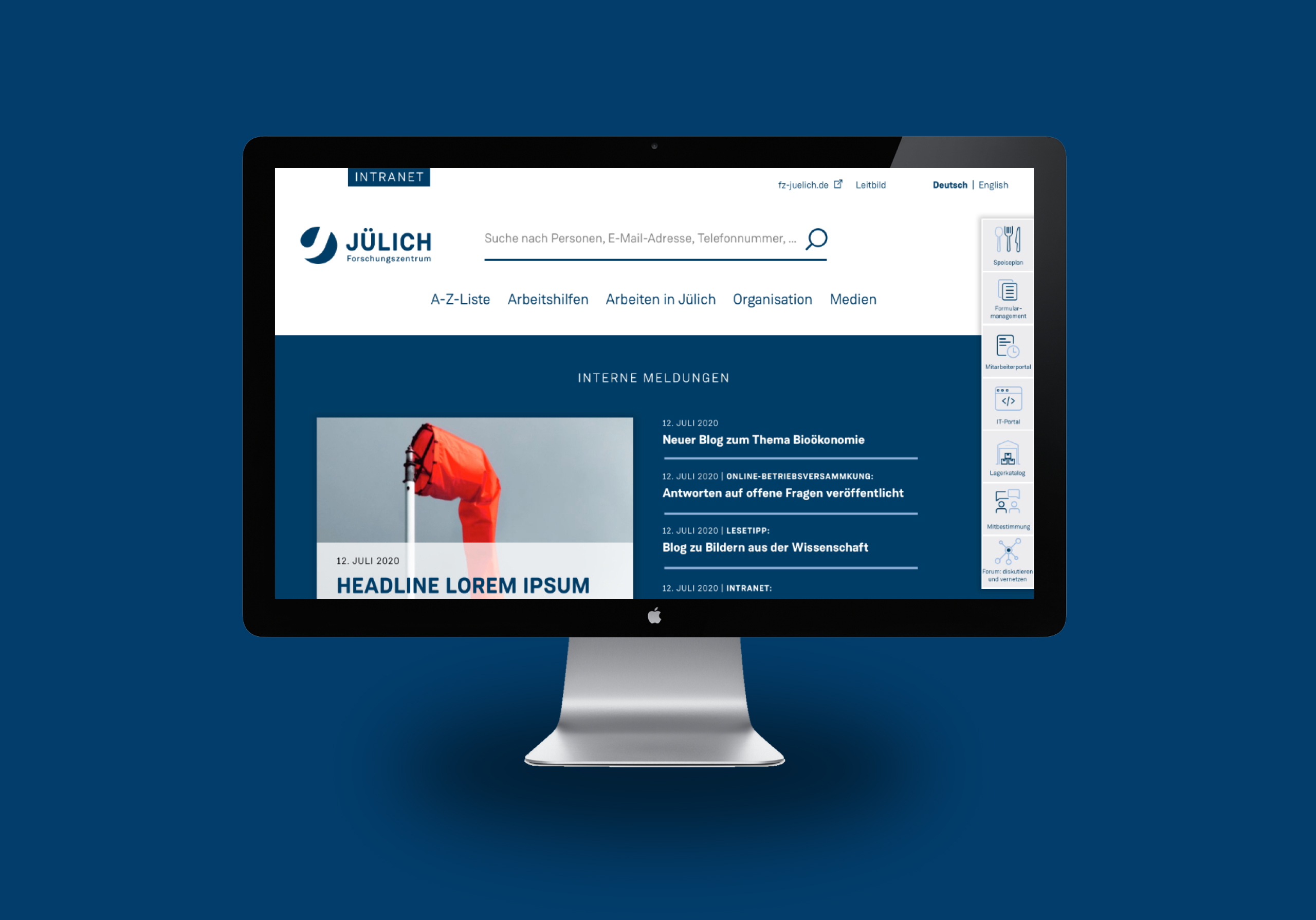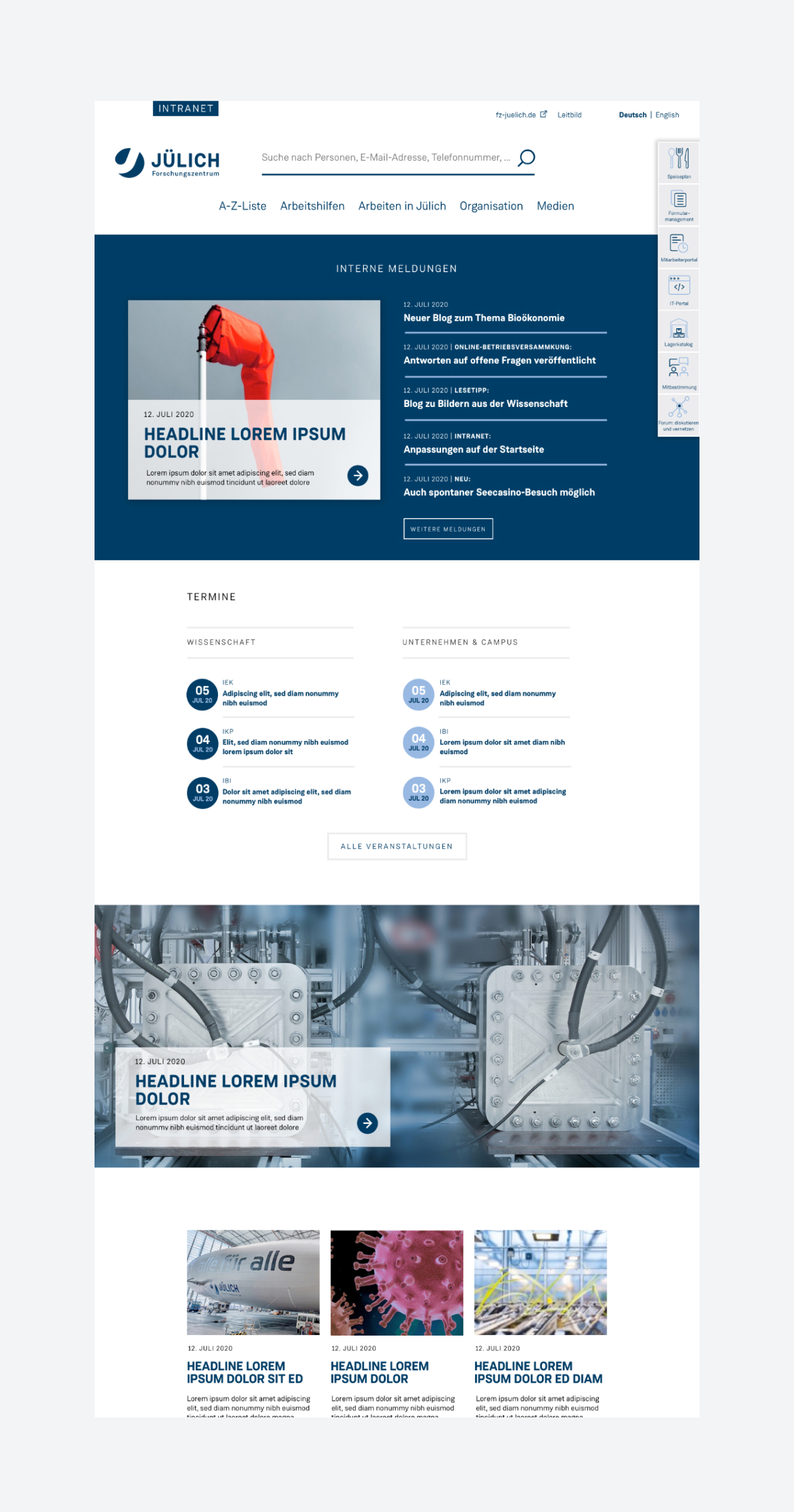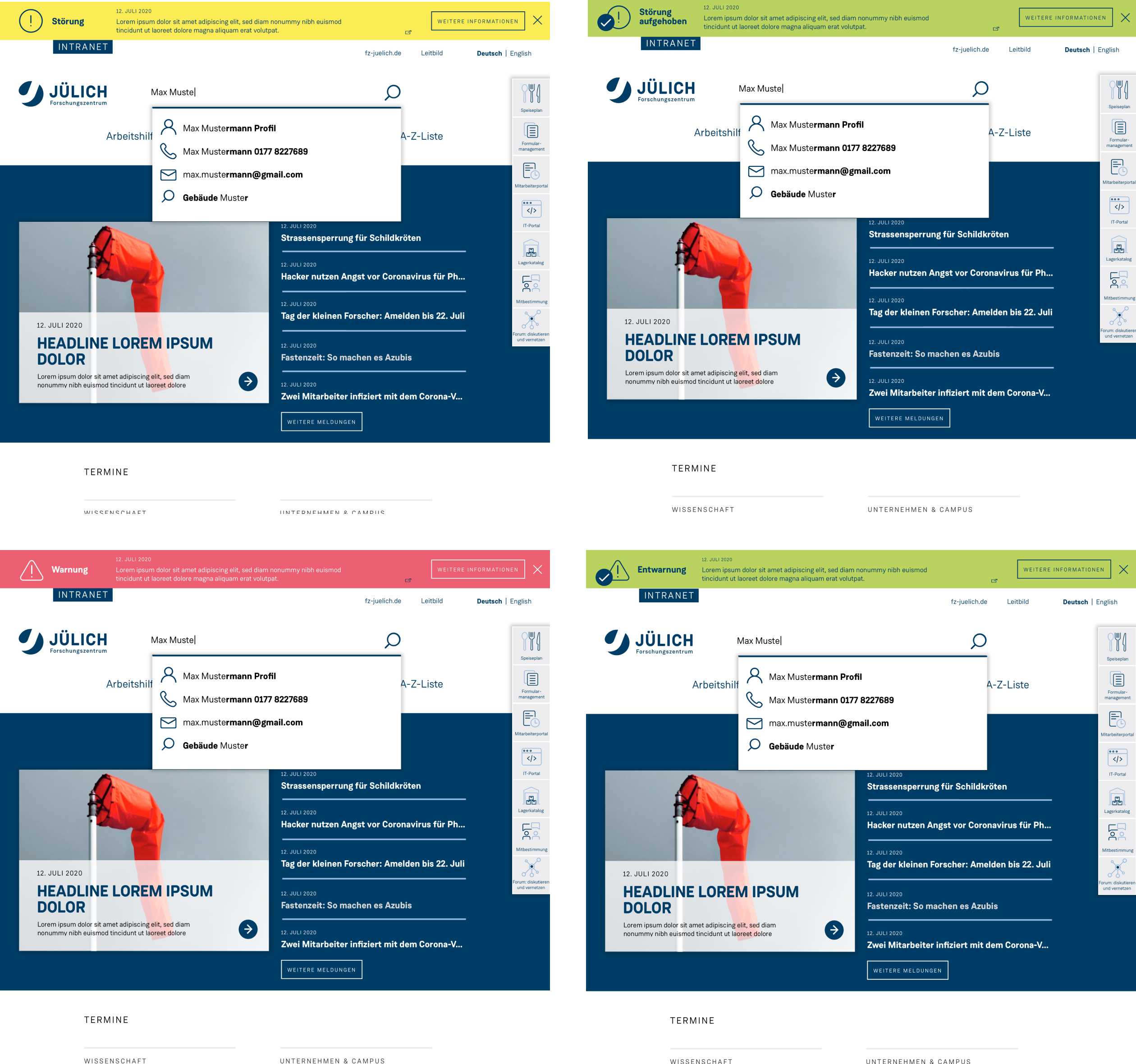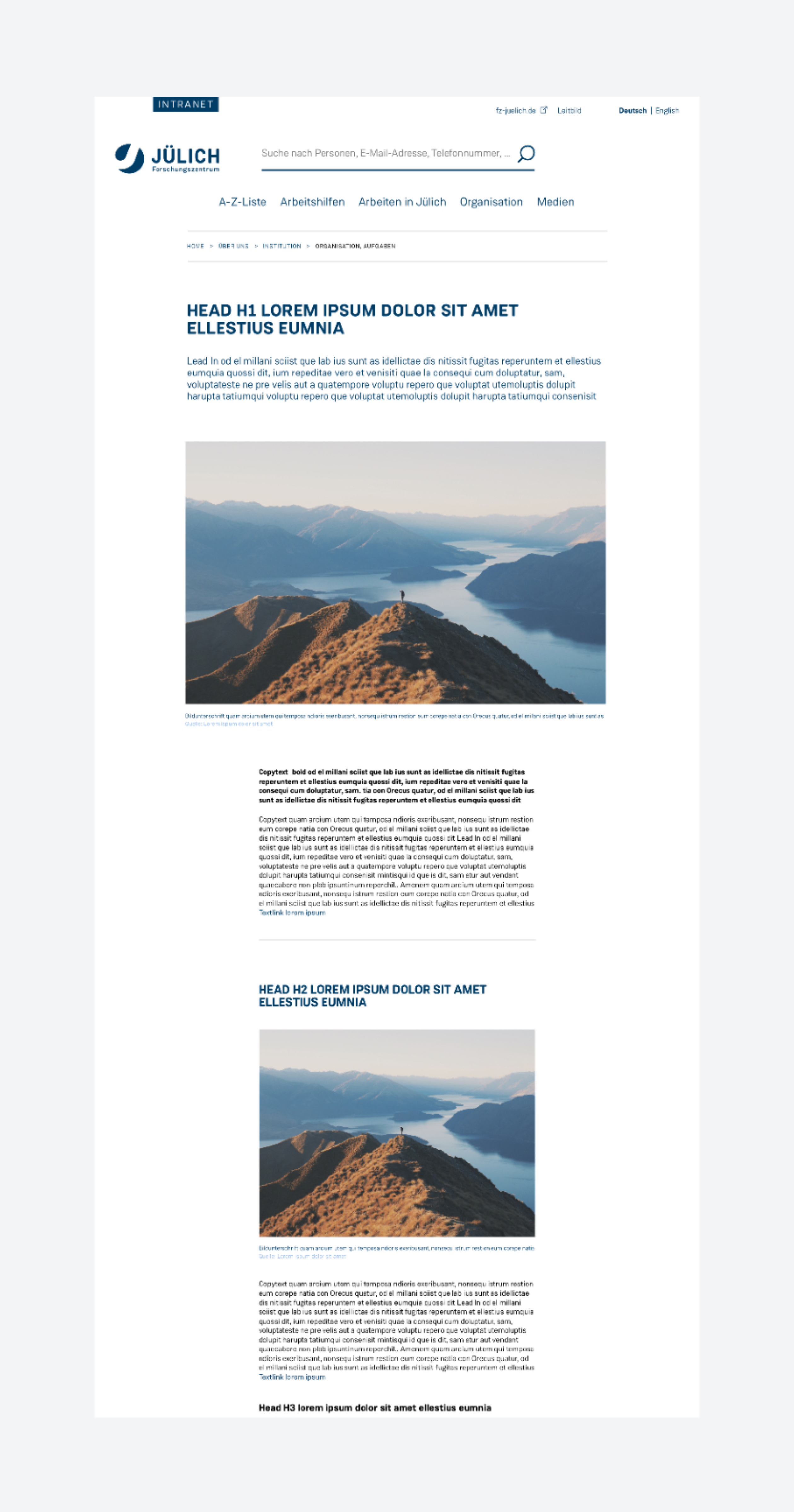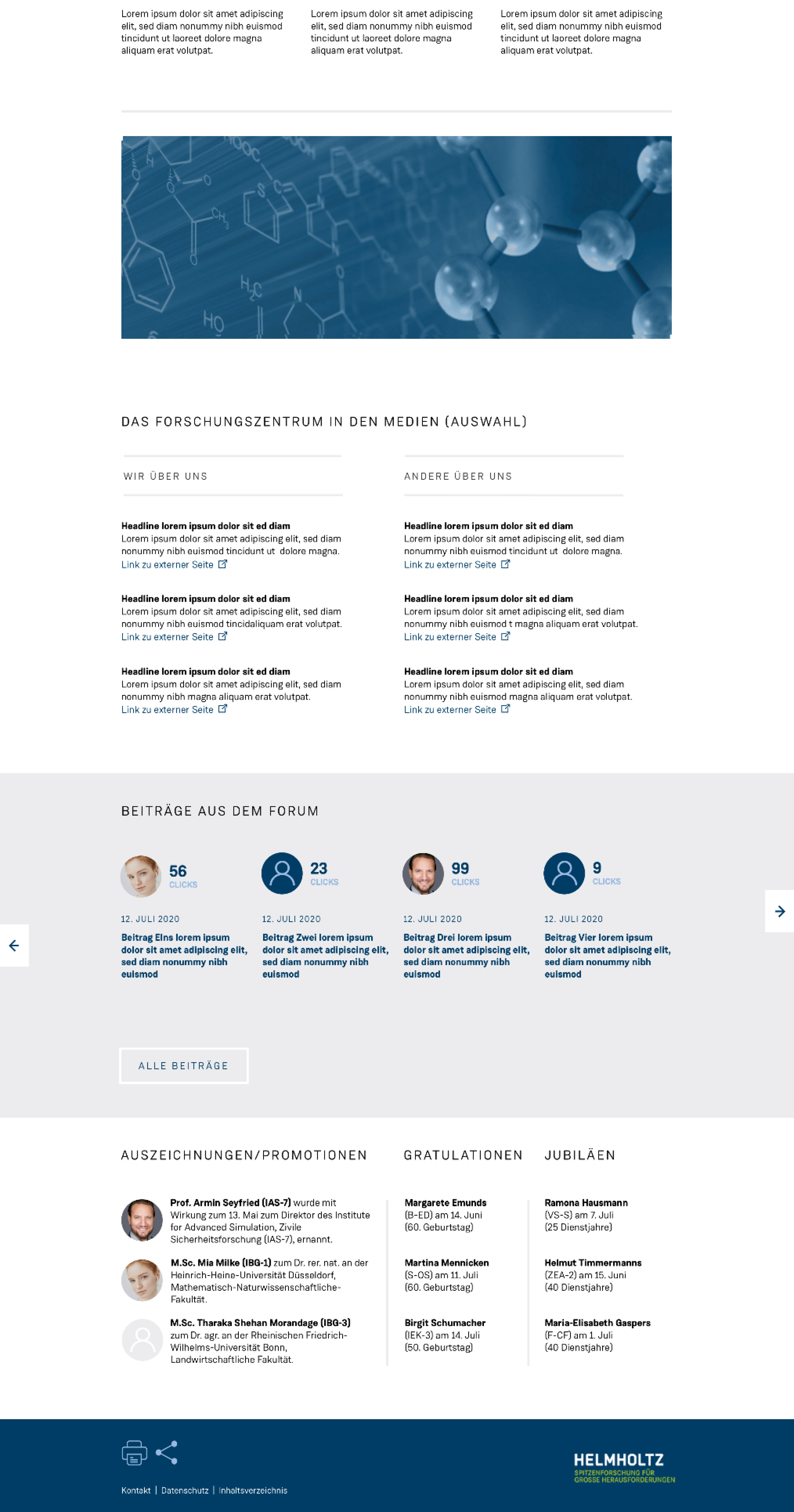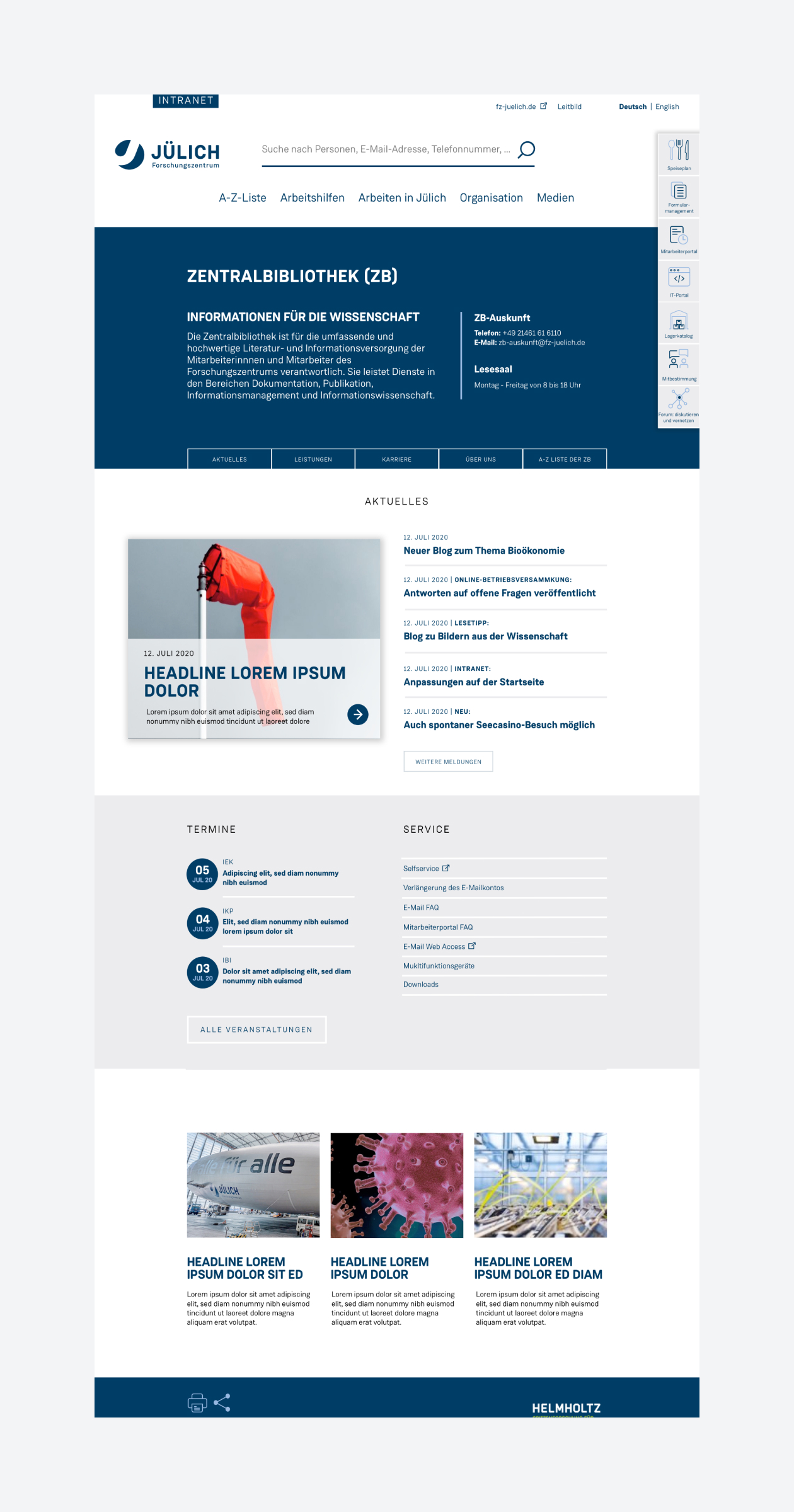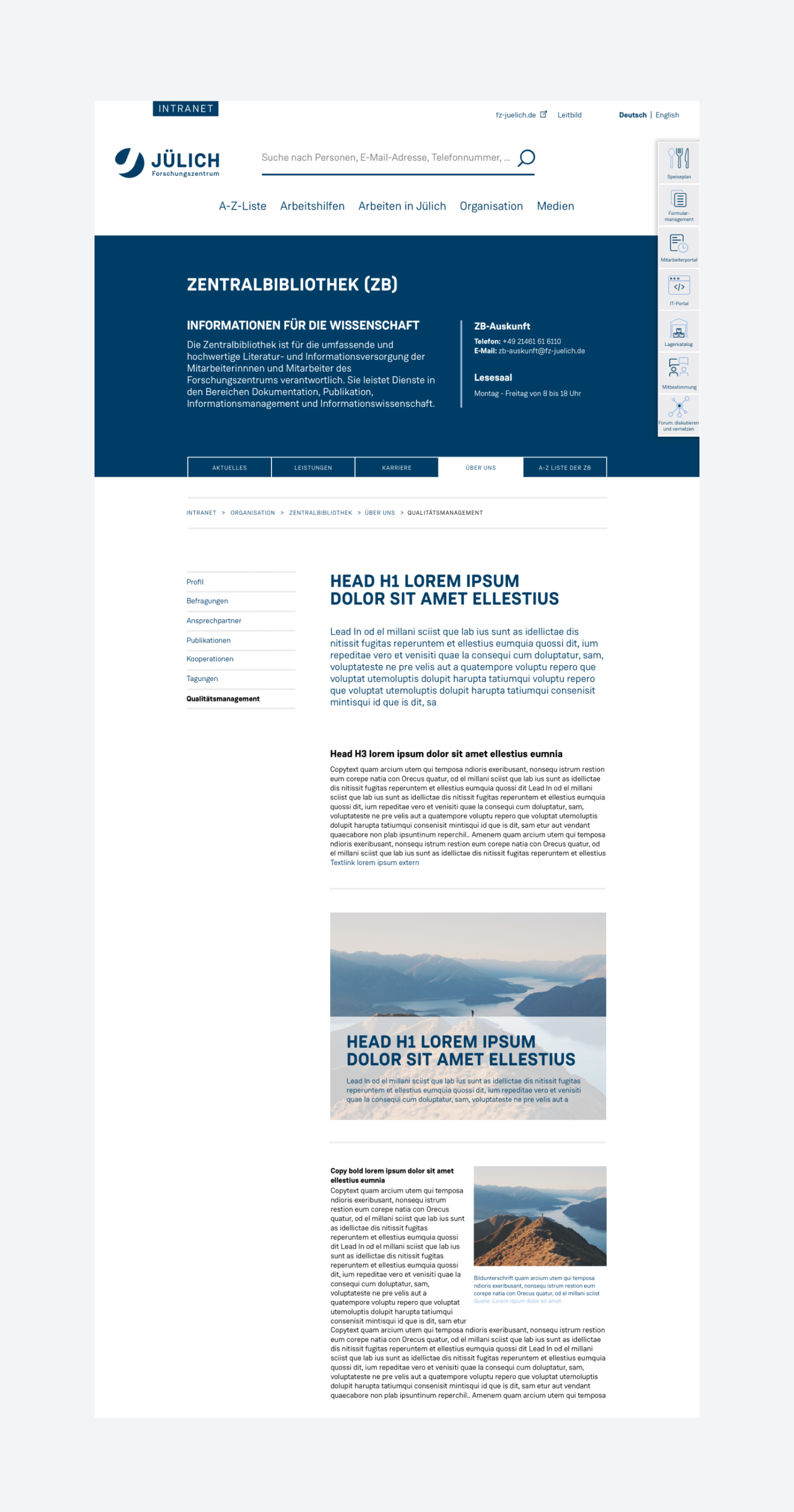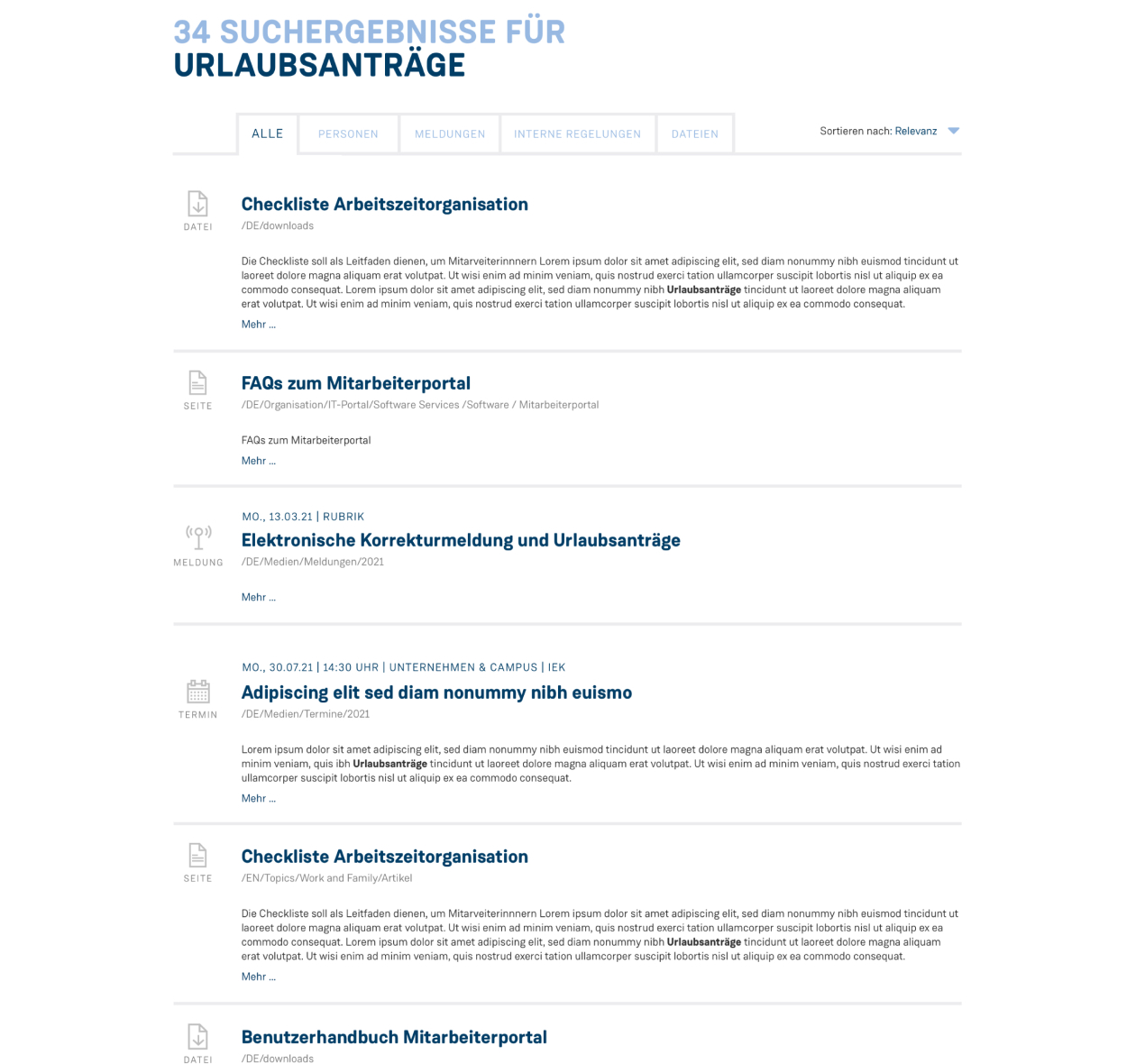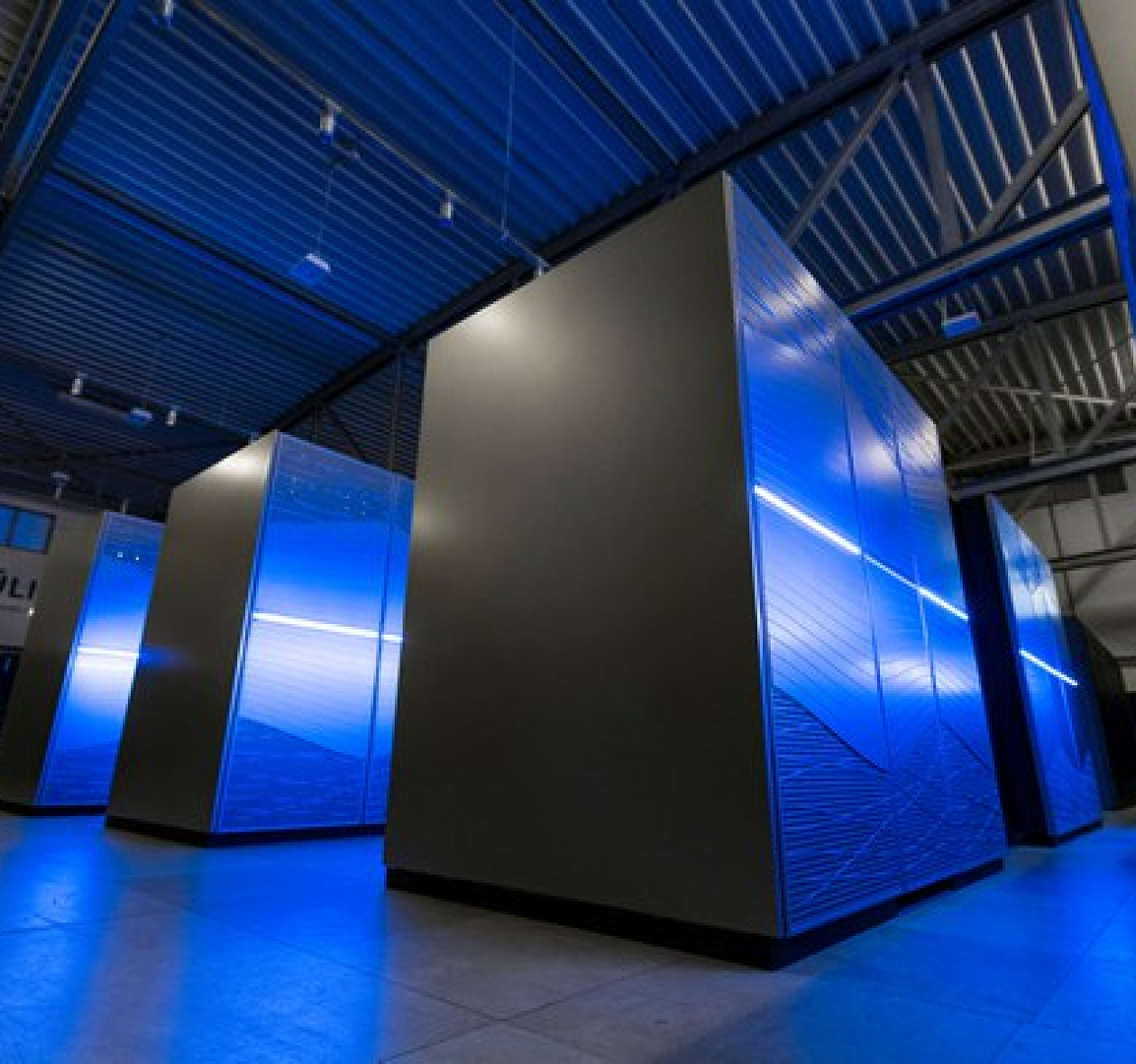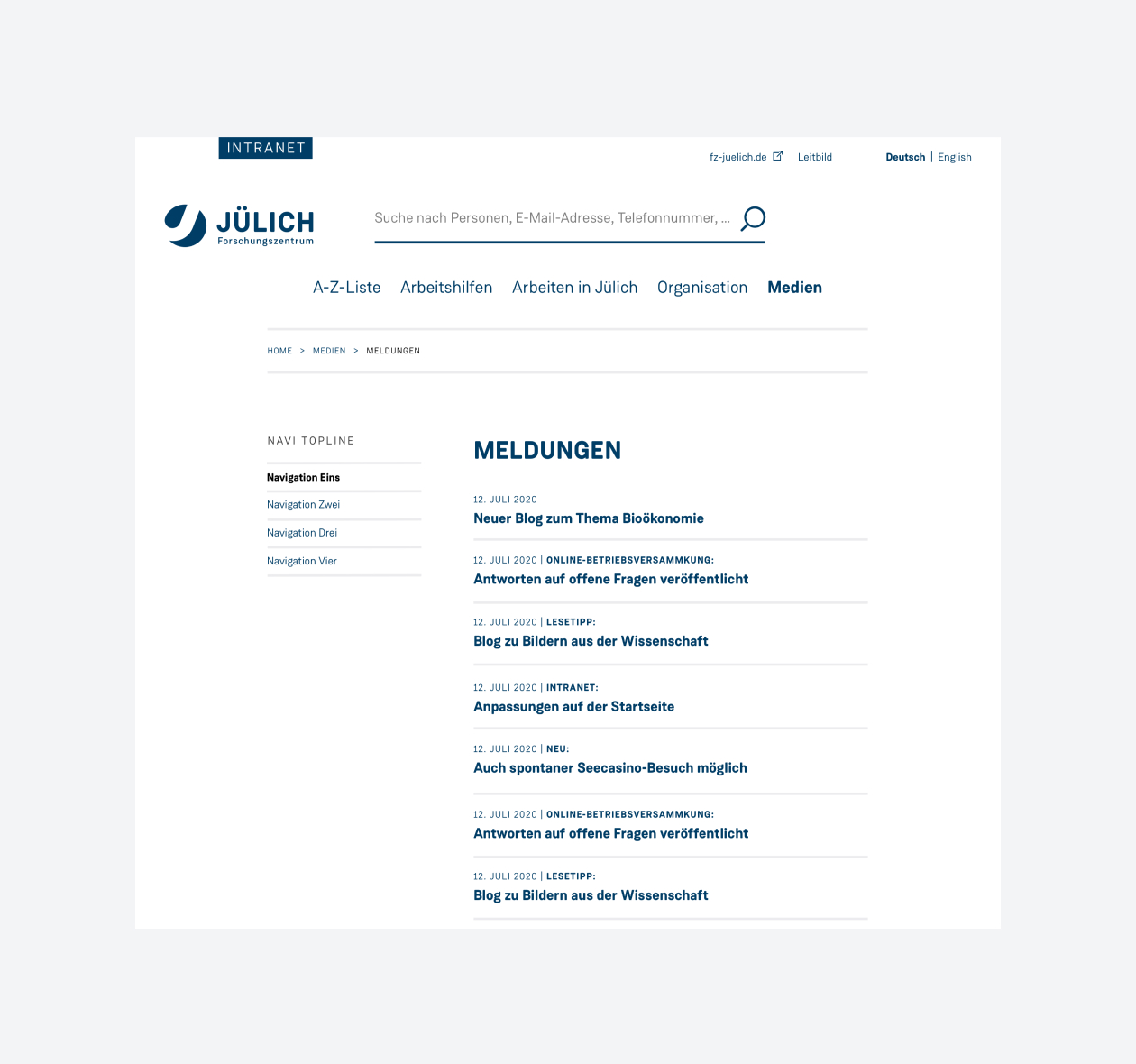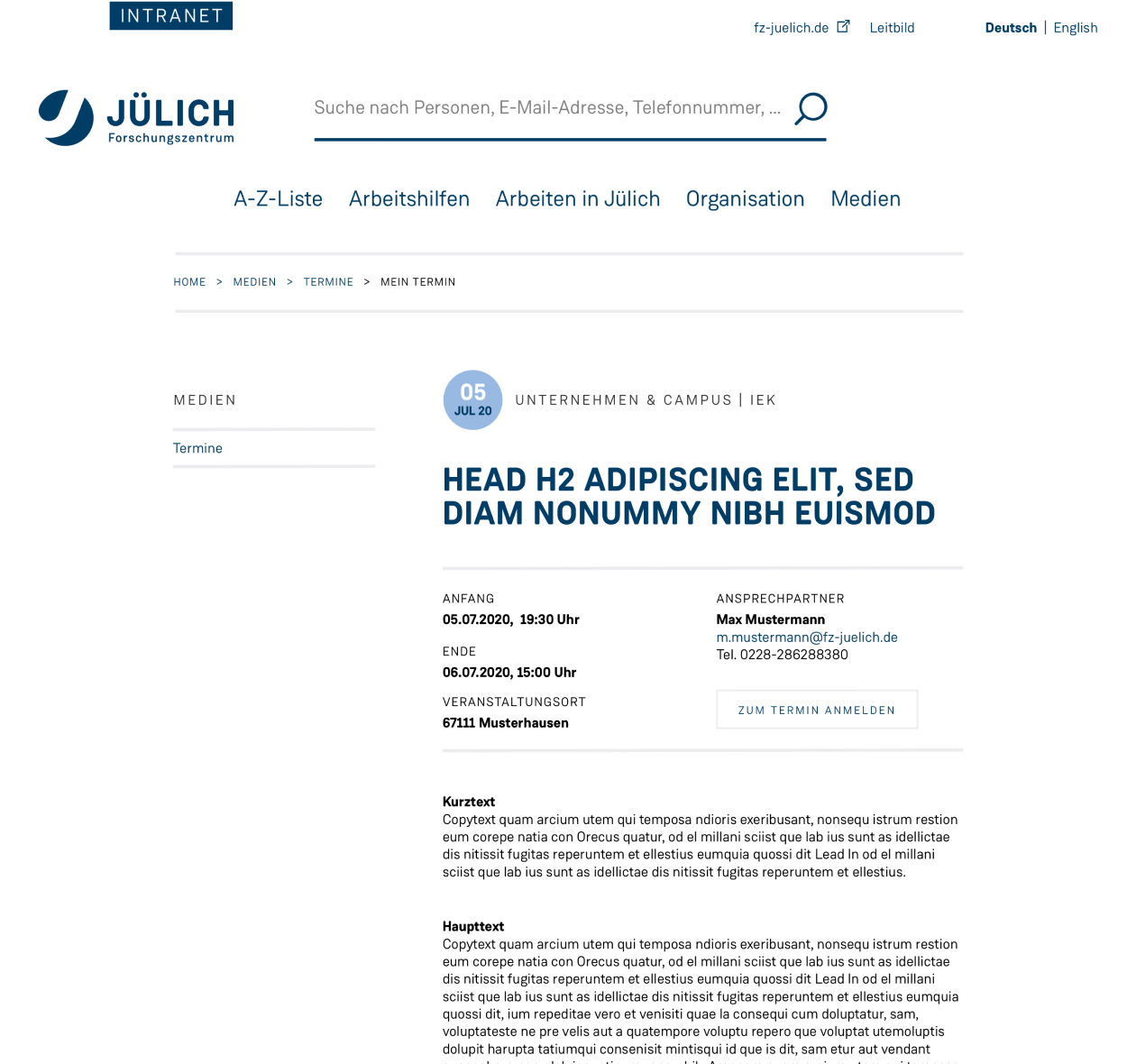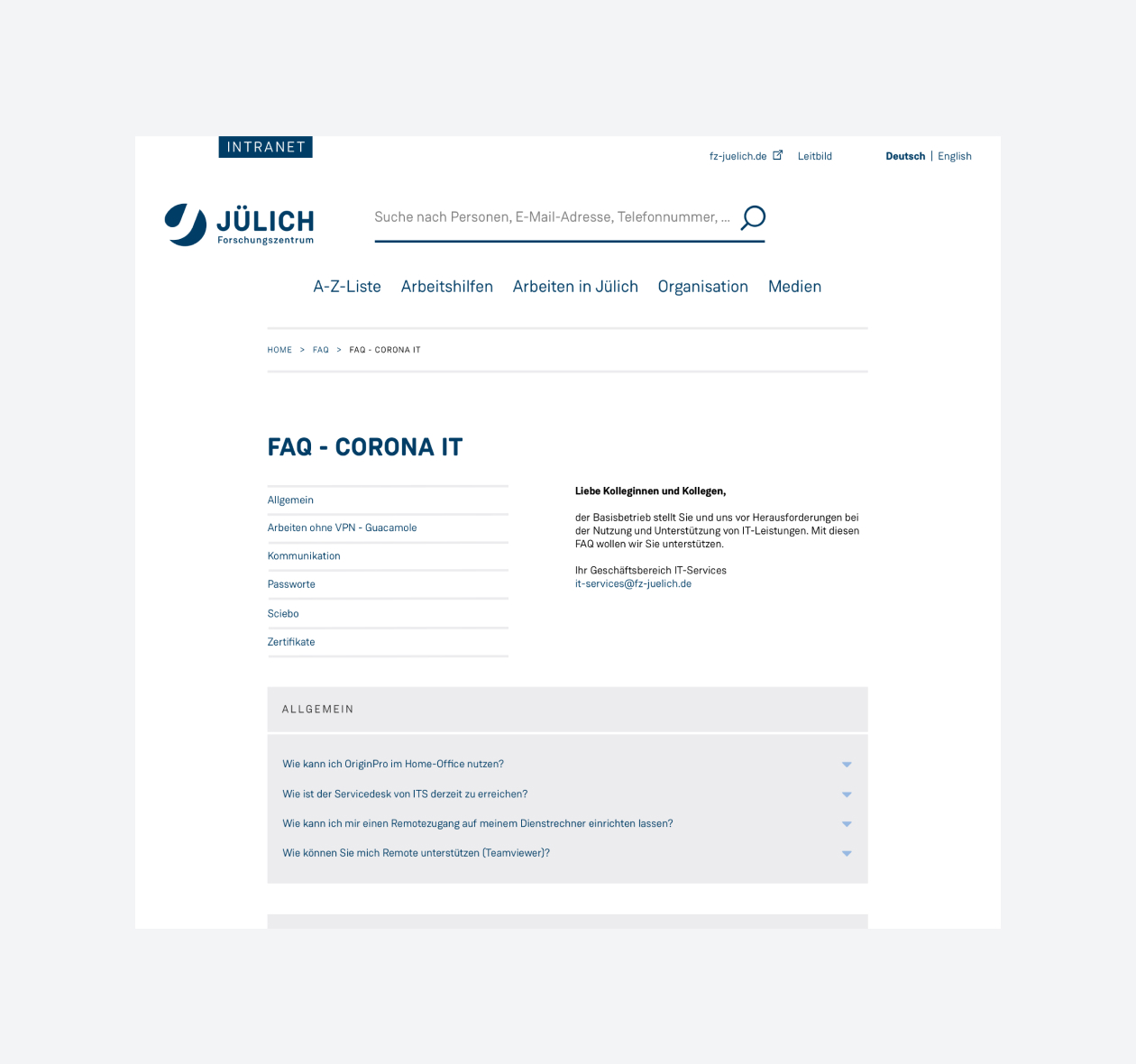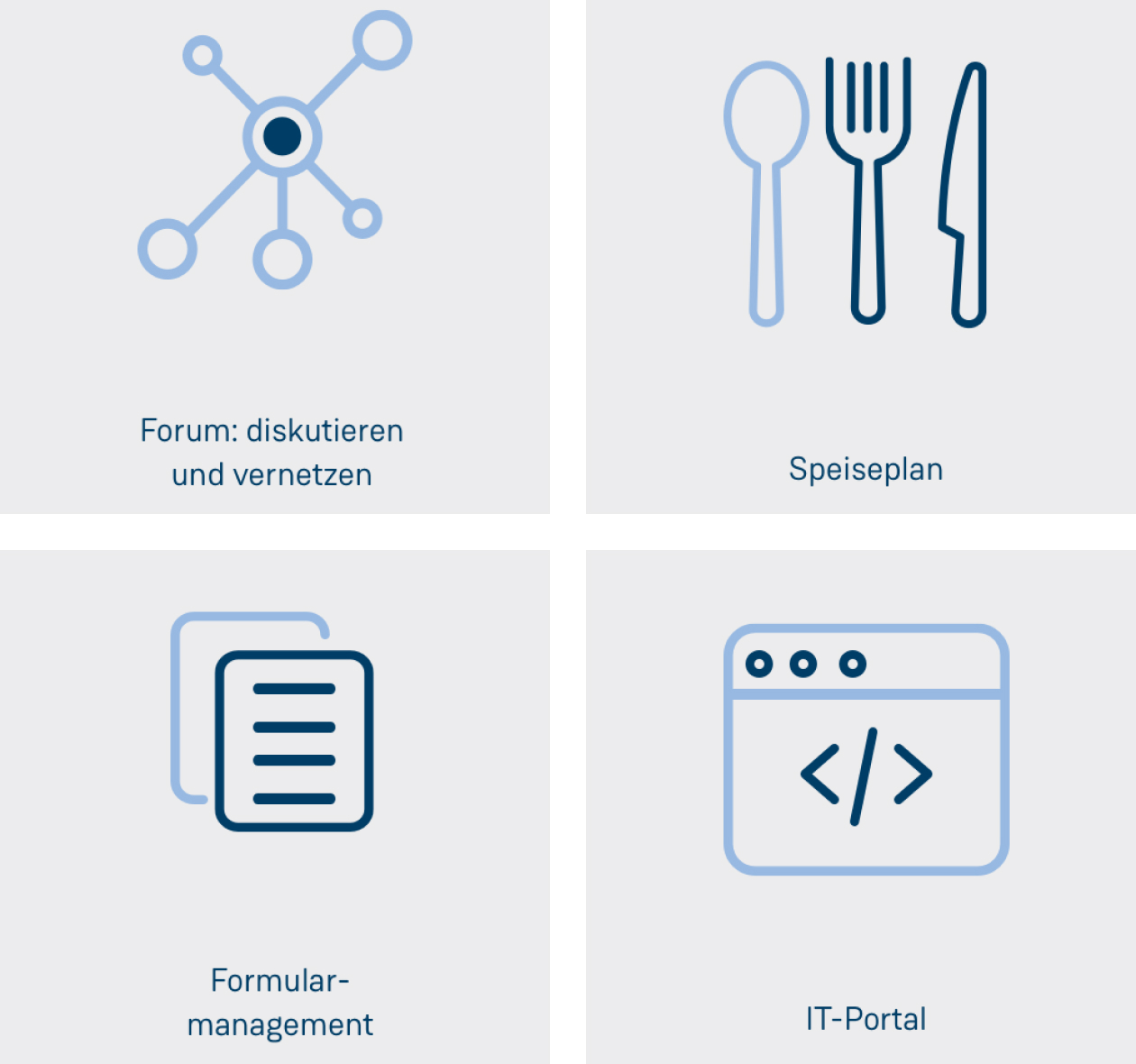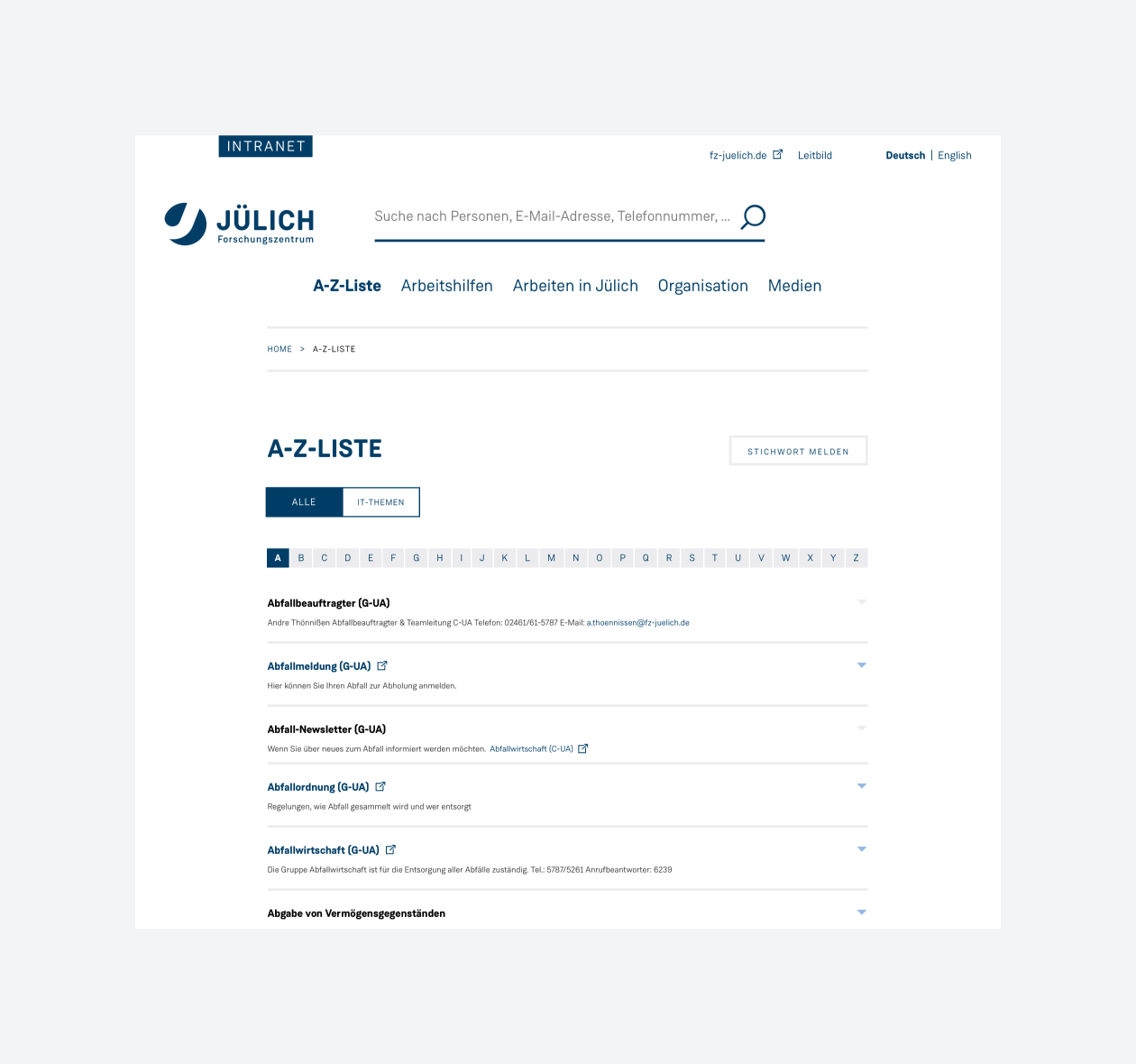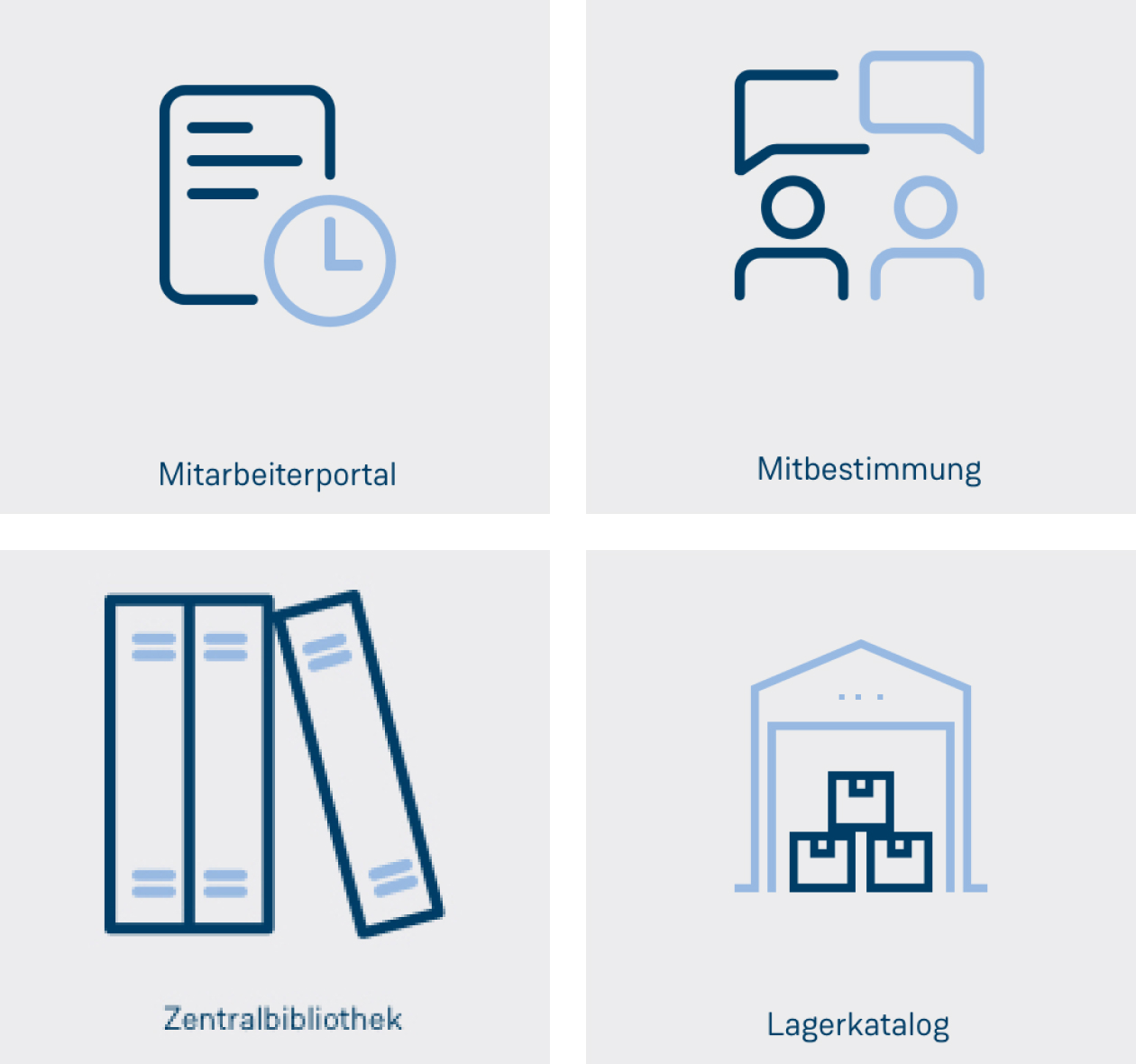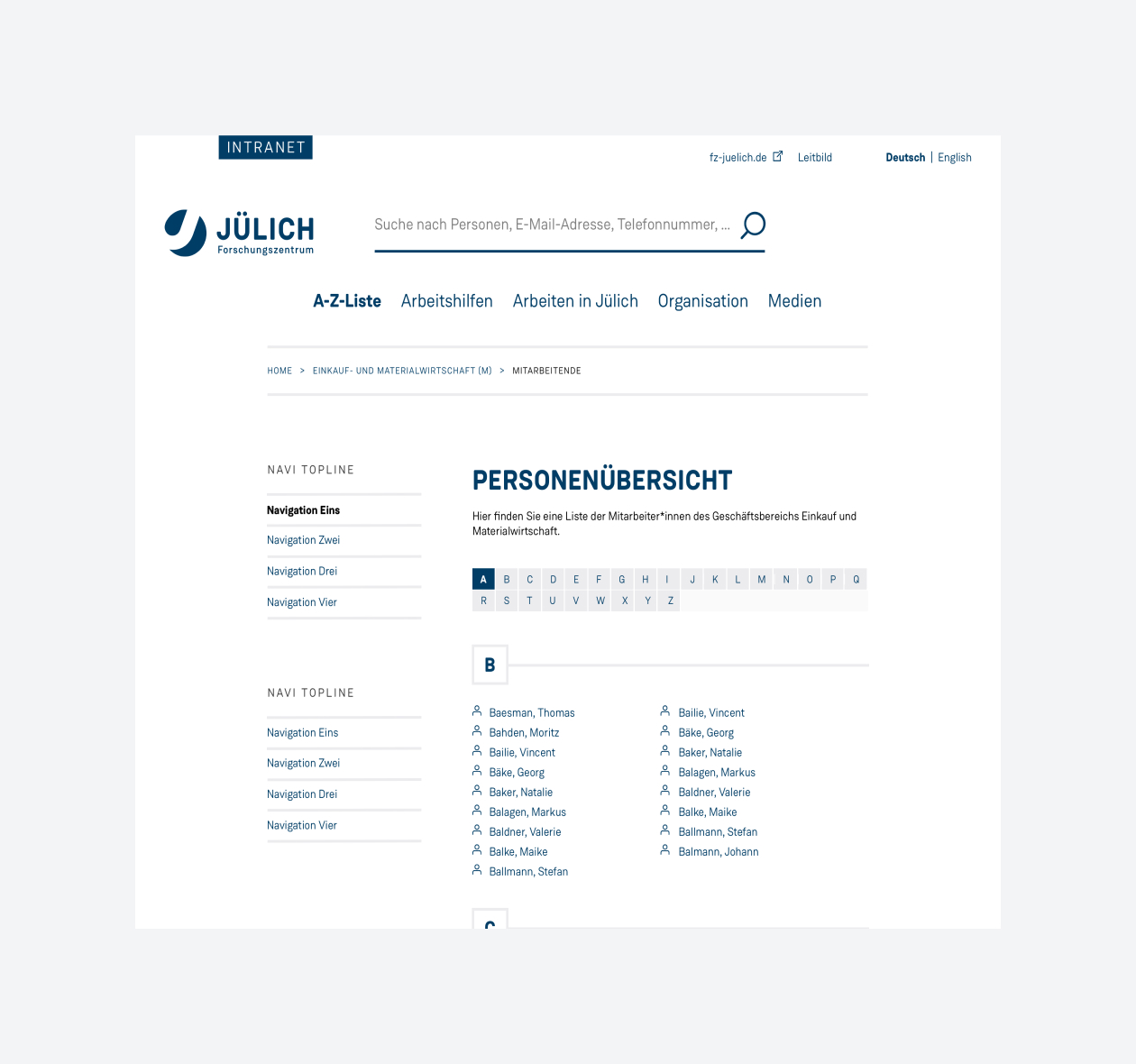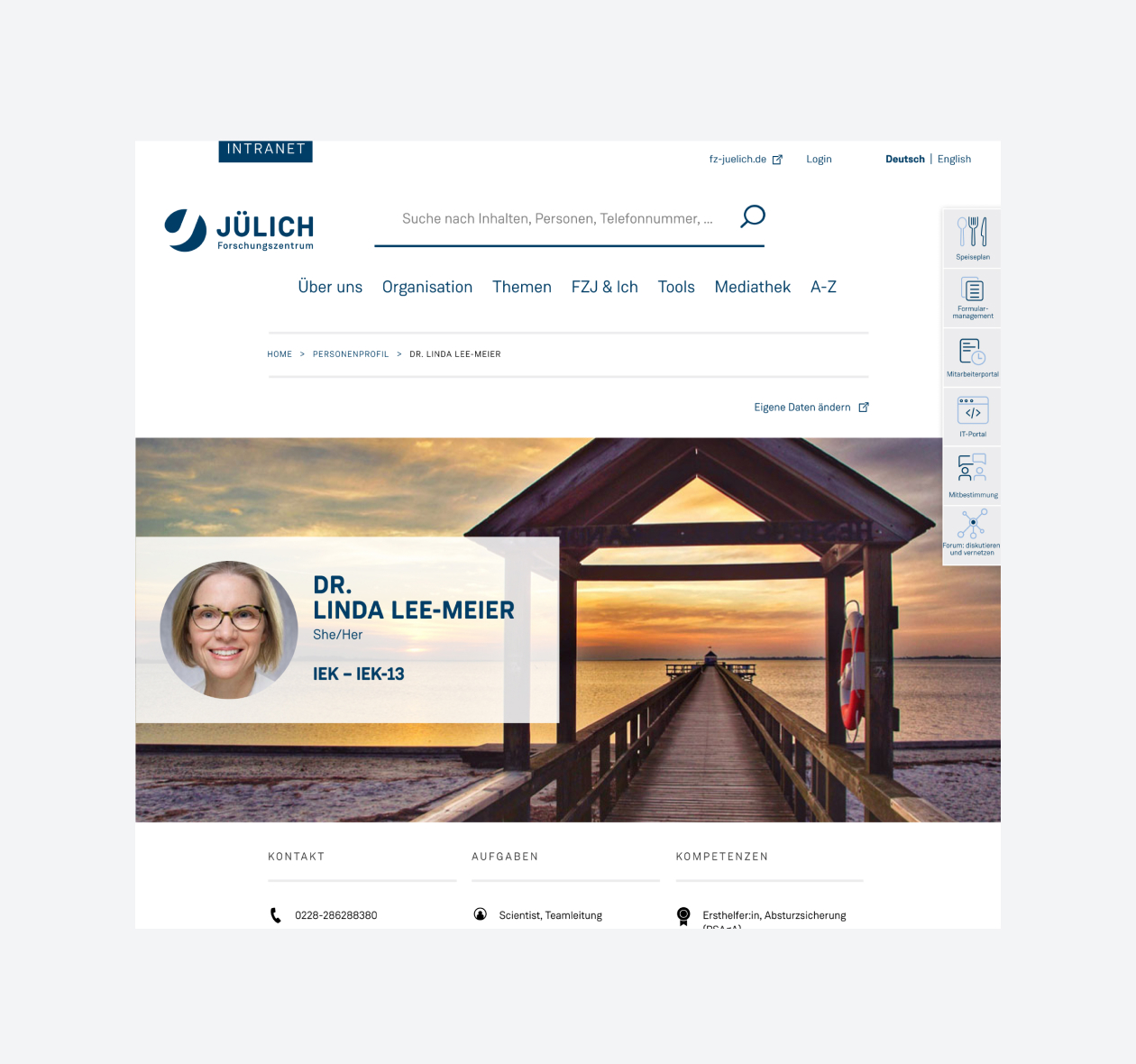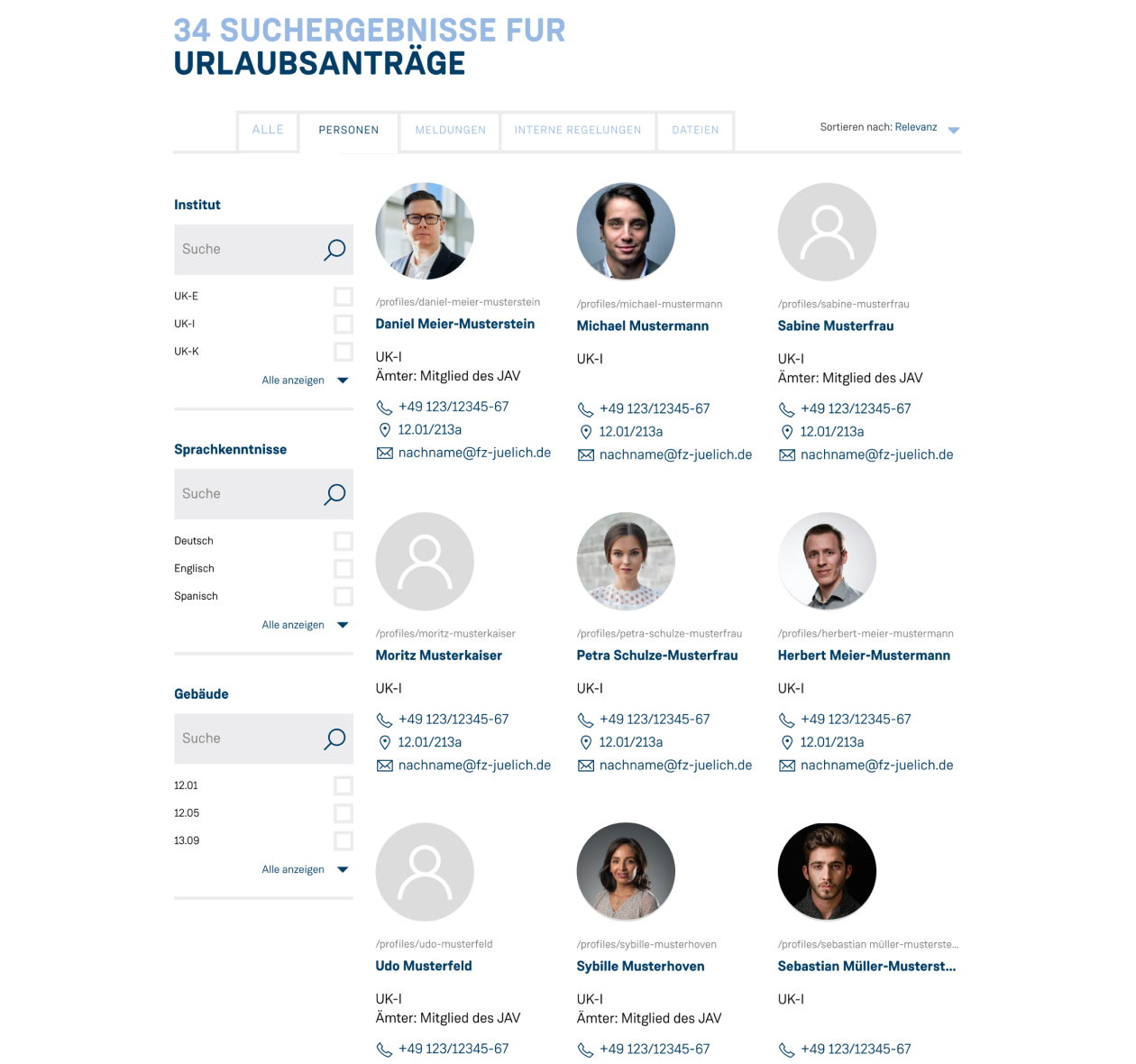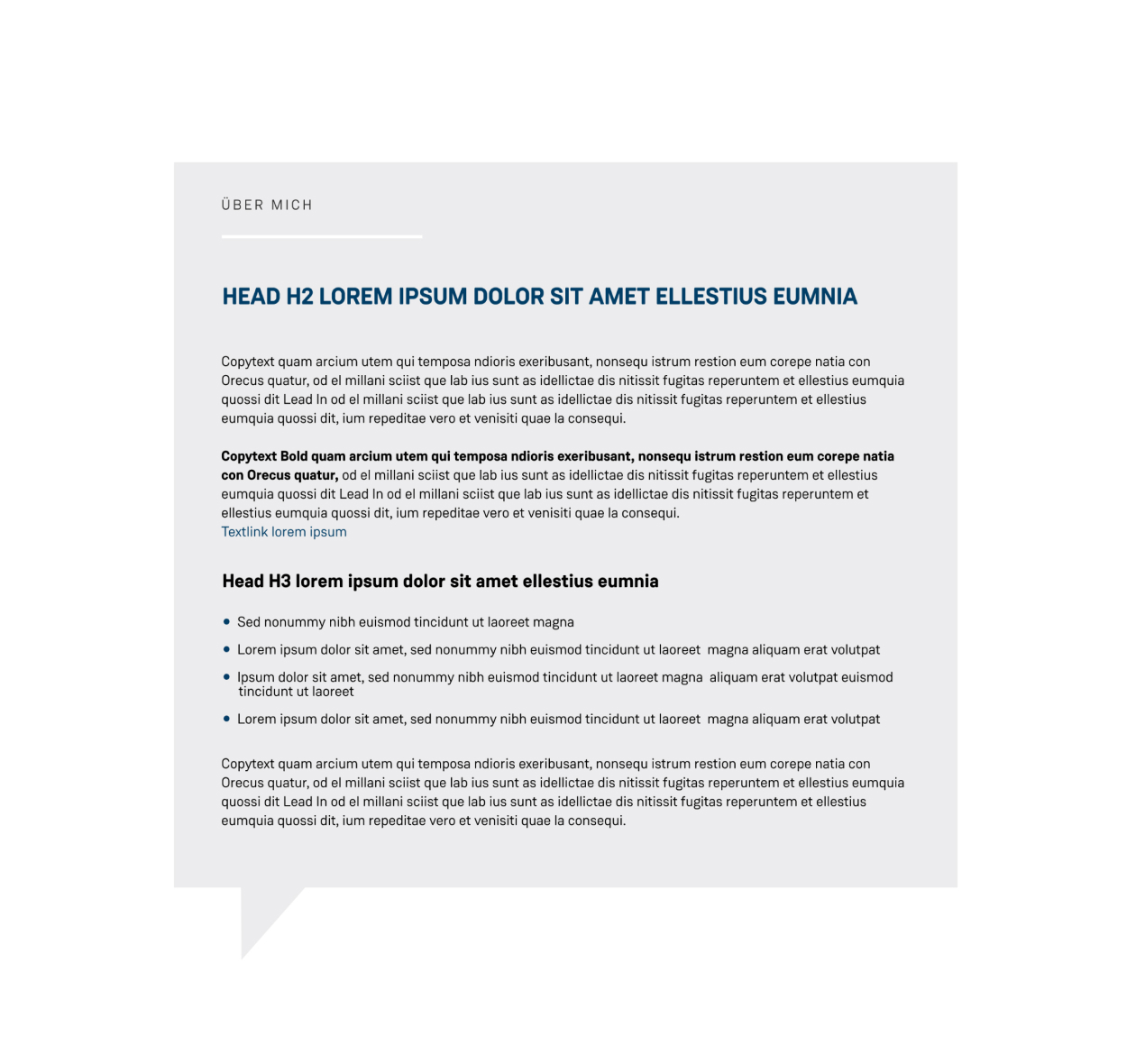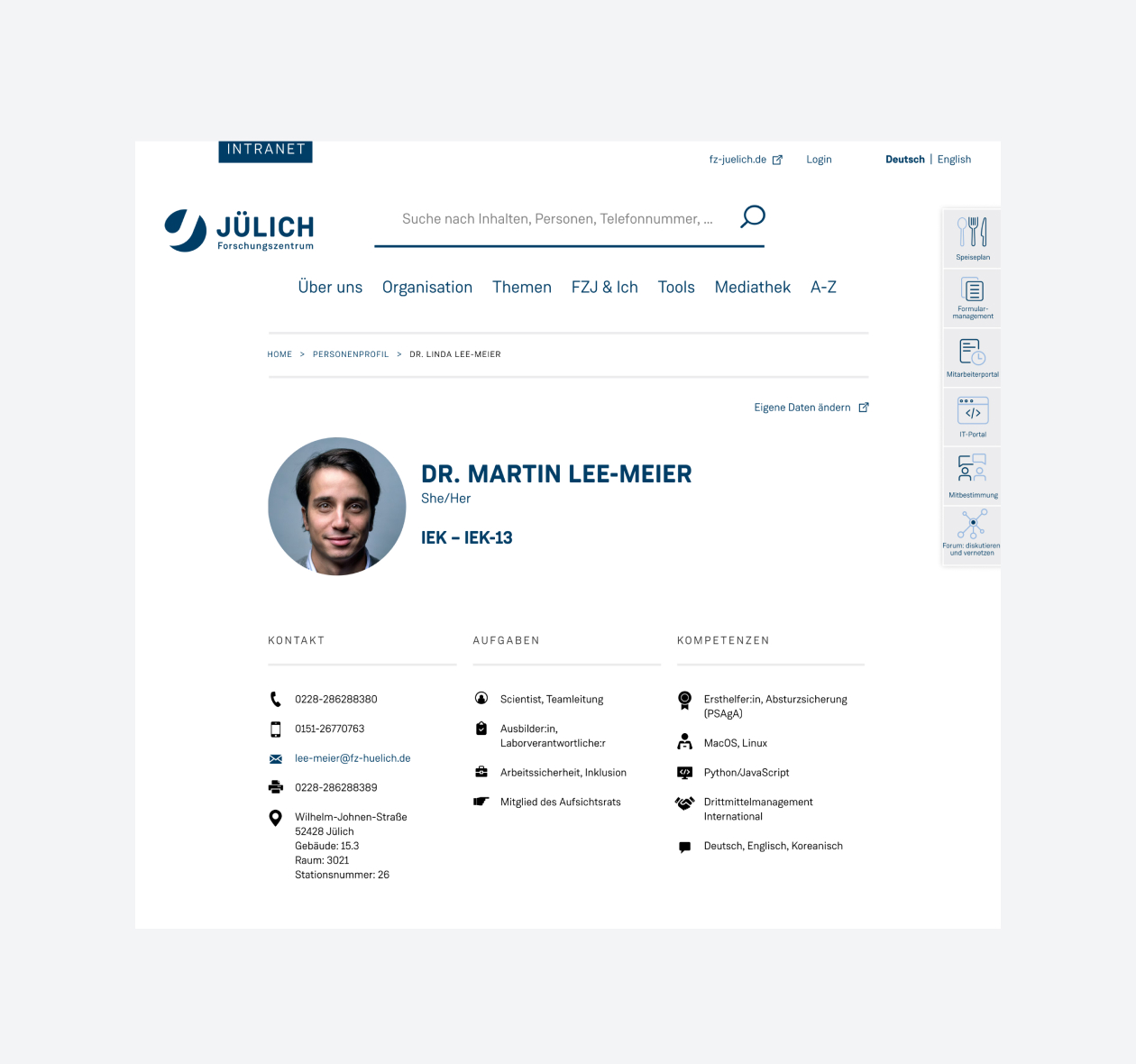Intranet Forschungszentrum Jülich
Relaunch of the intranet of the Jülich Research Centre with Plone 5.2 and Volto.
Introduction
Forschungszentrum Jülich operated its intranet on the basis of Government Site Builder (GSB) version 7. The system was outdated, not very user-friendly and could not adequately reflect the centre's complex organisational structure. Both editors and users were dissatisfied with the usability. In addition, the end of support for GSB made an urgent technical reorganisation necessary.
Challenges
- End of support: The CMS previously used was no longer supported from the end of 2020, which required a quick solution.
- Complexity: The mapping of the multi-layered organisational structure and the migration of all data had to be completed within just 12 months.
- User satisfaction: Editors were missing essential features, while end users struggled with a confusing page structure and an inefficient search function.
Solutions
In order to meet the diverse challenges of the project, we chose a holistic approach that allowed us to work on technical and organisational aspects in parallel. Firstly, we carried out a detailed analysis of the existing intranet. We analysed the existing information architecture, evaluated the functionality of the search function and its results and recorded the requirements of all relevant stakeholders.
Based on this analysis, we developed a comprehensive concept and planned the implementation. A user-centred UX concept was created to improve usability, while the information architecture was fundamentally revised to ensure intuitive navigation. In addition, we developed an ‘intranet within an intranet’ concept that takes into account the specific needs of the organisational units. New functions such as person profiles and employee lists were introduced and the search function was optimised to deliver high-quality results.
During the technical implementation phase, we completely migrated all data from the old system and developed a flexible and scalable content management system (CMS) that meets the future requirements of the research centre. Finally, we integrated a powerful search function that delivers precise and relevant results and significantly increases the user-friendliness of the new intranet.
Result: A modern, powerful intranet
Within just 12 months, a completely new intranet was implemented that fully meets the requirements of Forschungszentrum Jülich.
Highlights of the new system:
- User-friendliness: Intuitive navigation and an optimised information architecture make it easier to use.
- Flexibility: The organisational units can manage themselves independently without having to rely on central support.
- Efficient search: A powerful search function delivers precise and high-quality results, including the search for personal profiles.
- Future-proof: The new CMS offers a solid technical foundation and is scalable for future developments.
Success Factors:
- Efficient collaboration: Close coordination with all organisational units and stakeholders.
- Speed: Realisation of all requirements within the tight time frame of 12 months.
- User-centred: Focus on the needs of editors and end users.

